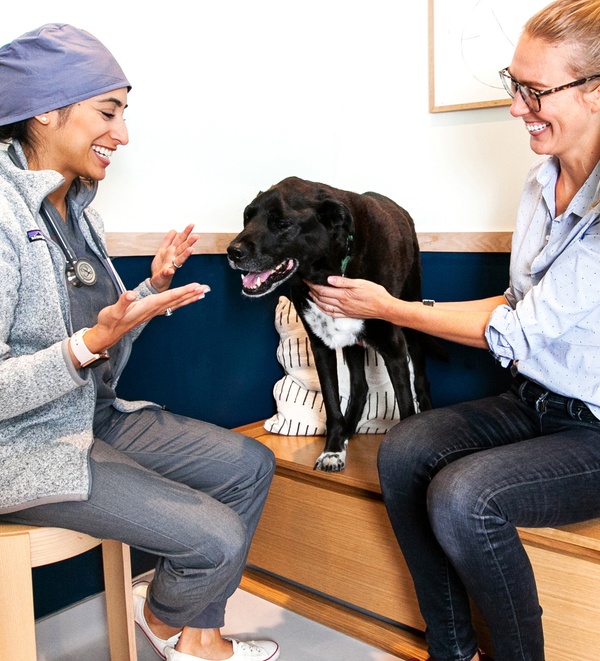
Coronavirus and Your Pet
Updated March 12, 2020
During this global coronavirus outbreak, there's a lot of talk about sanitizing, hand-washing and avoiding contact with dirty surfaces. So you’re probably wondering, Can my pet catch coronavirus? And can they give it to me?
On February 29, 2020, one dog (belonging to a COVID-19 patient) tested positive for coronavirus in Hong Kong. Samples from the dog's nose and mouth tested "weak positive" for coronavirus, according to Hong Kong's Agriculture, Fisheries and Conservation Department (AFCD). The dog exhibited no symptoms, but per protocol, the dog is being quarantined and retested until he is negative for coronavirus. At first, the consensus was that the dog had the virus in its nasal and oral cavities but was not actually infected, but on March 4, veterinary experts are saying the repeated weak positive results "suggest that the dog has a low-level of infection and it is likely to be a case of human-to-animal transmission."
But that "suggestion" was not viewed as evidence — the AFCD and the World Health Organization agreed on March 4 that there is currently no evidence that pets can be infected with coronavirus.
On March 12, we received further confirmation. "There is no research to support human to animal spread at this time," Shelley Rankin, a microbiologist at the University of Pennsylvania School of Veterinary Medicine, told Science Magazine.
Viruses & your pets, in general
While there are “zoonotic” diseases — aka viruses, bacteria and parasites that are transmitted between animals to humans — that transmission is typically not likely. However, your odds do increase if you have a compromised immune system. Coronavirus is a zoonotic disease, thought to have been generated in bats, but there's no statistically significant evidence that it can be transmitted between pets and humans. A few other zoonotic diseases you might have heard of are:
- Rabies
- Ringworm
- Salmonellosis
- Leptospirosis
- Campylobacter infection
- Giardia
- Cryptosporidium infection
- Roundworms
- Hookworms
- Scabies
- Harvest mites
COVID-19 isn't our first rodeo with a coronavirus — the 2003 SARS outbreak was also a coronavirus (that also originated in bats). During that outbreak, no cats or dogs were known to transmit SARS to humans.
With regard to COVID-19, the Centers for Disease Control and Prevention says the disease typically spreads person-to-person in densely populated spaces and via respiratory droplets that circulate when an infected person coughs and sneezes.
So, what should I do?
The best way to protect yourself from coronavirus is good hygiene. Wash your hands with soap and water, and encourage others to do the same. When it comes to pets, the AFCD recommends washing hands before and after handling pet food and supplies, and avoiding kisses (better to be safe than sorry). You may also use antiseptic wipes on their paws after a walk, but be careful not to overdo it, as it can be very drying.
As we've said, there are still a lot of unknowns and scientists are learning more about the disease every day. A dog face mask isn't necessary, but good hygiene is. And during this time of fearmongering, your cortisol (stress hormones) levels are likely increasing — QT with your pet reduces cortisol, so feel free to soak up some emotional therapy during this outbreak. And we'll let you know if there's any reason to change your behaviors, as experts learn more about coronavirus.